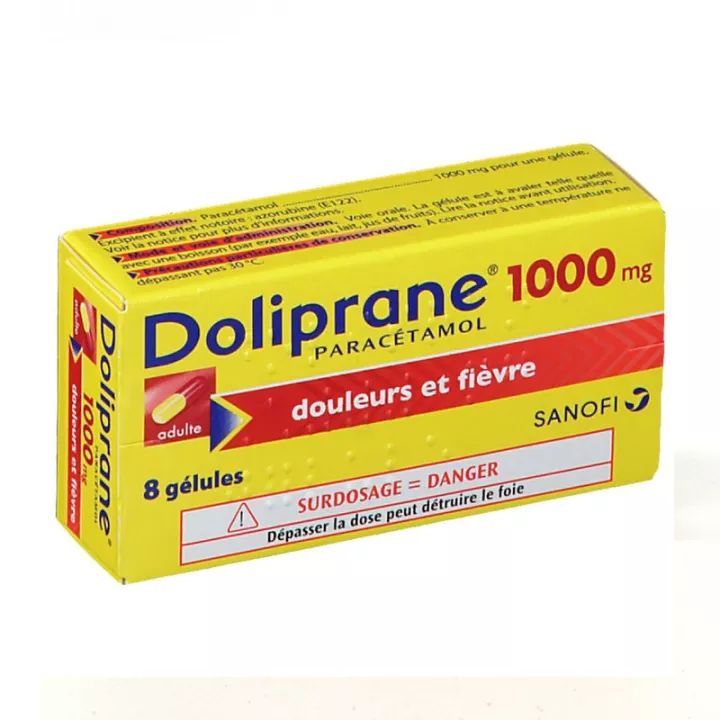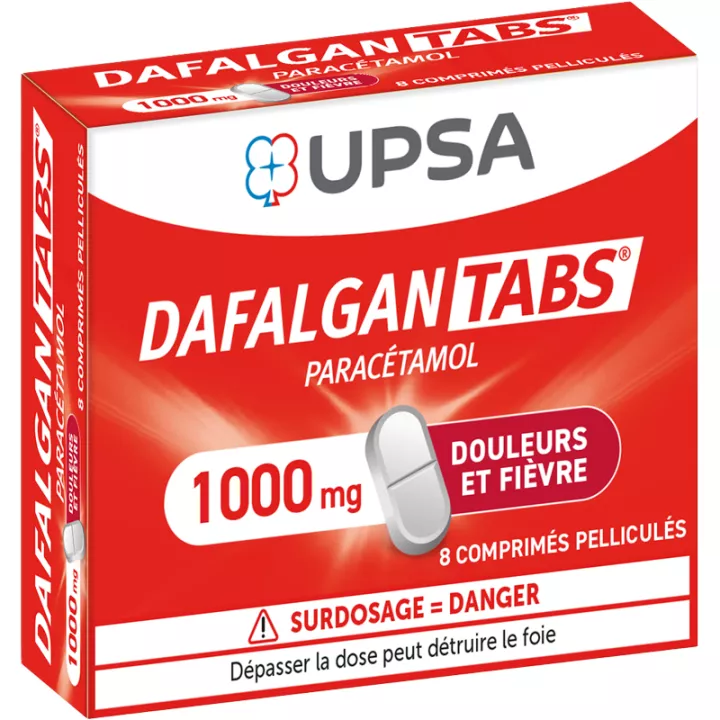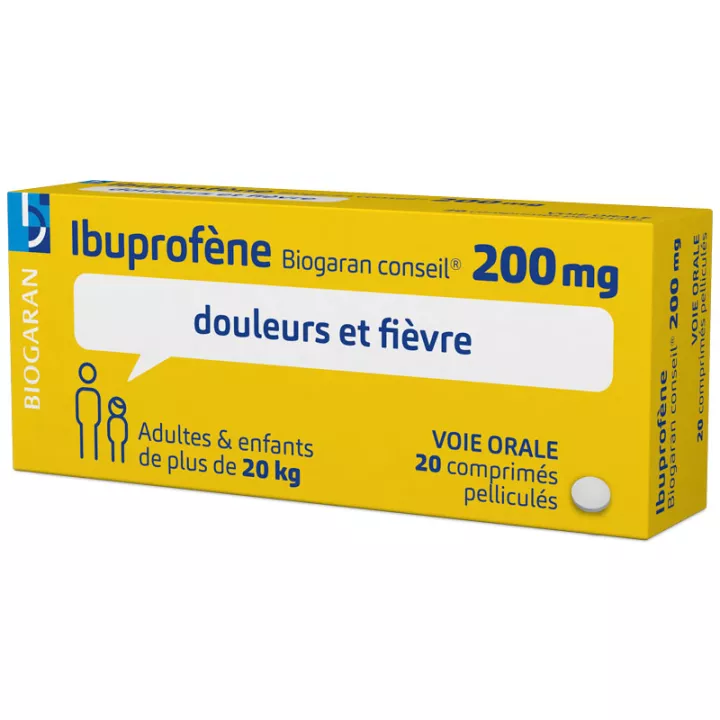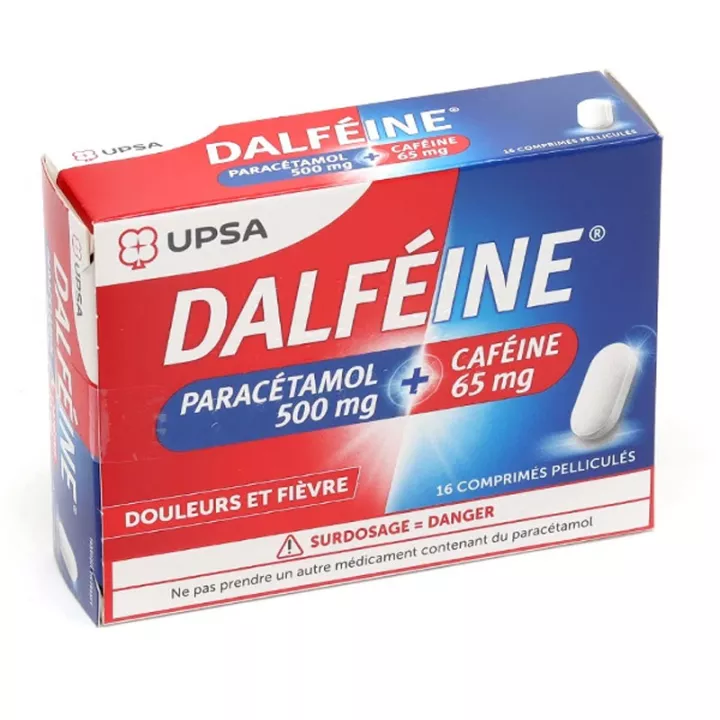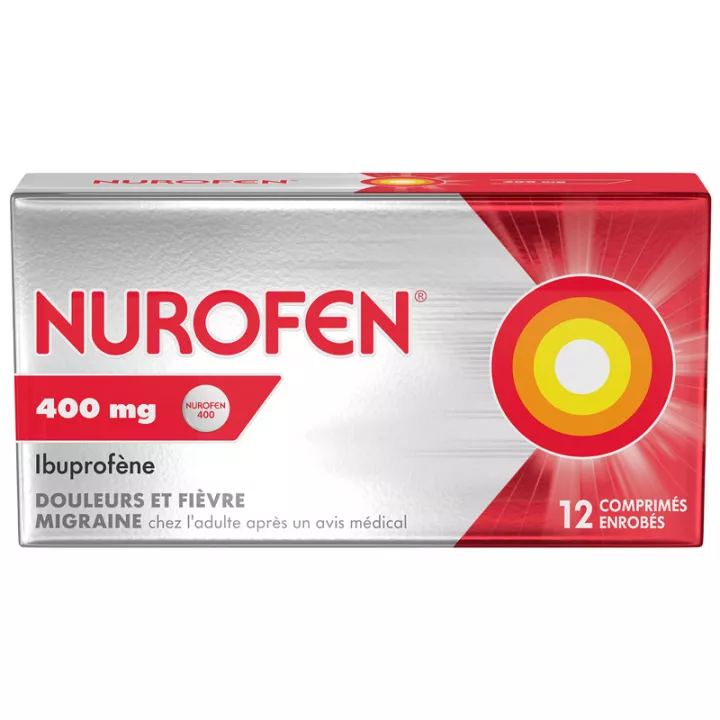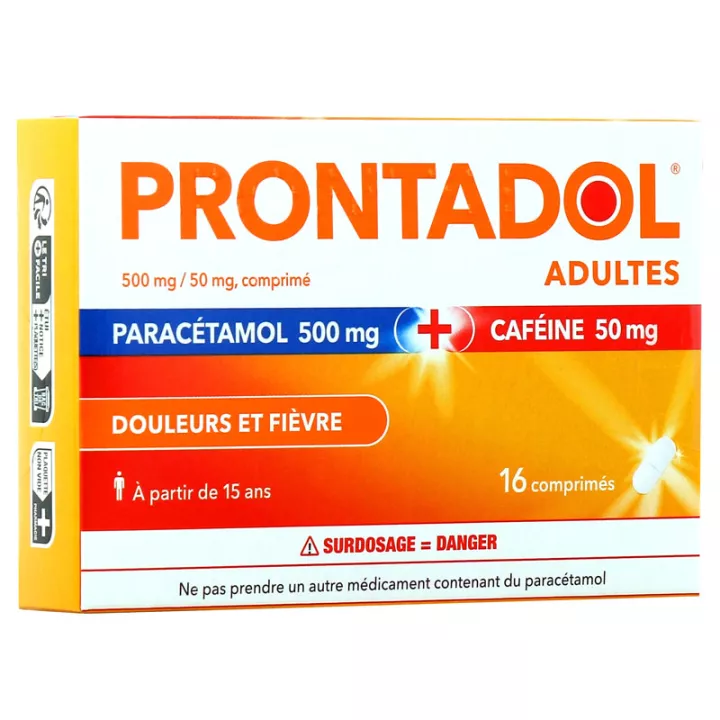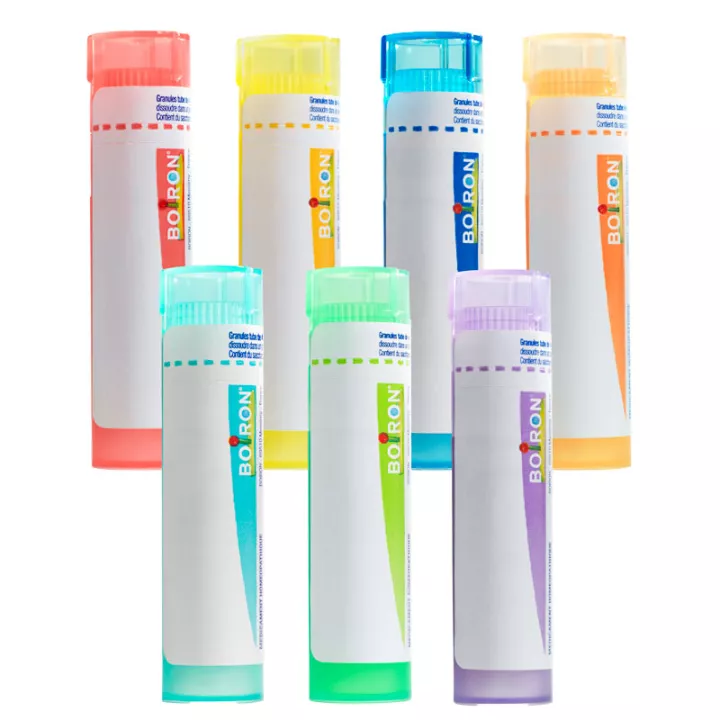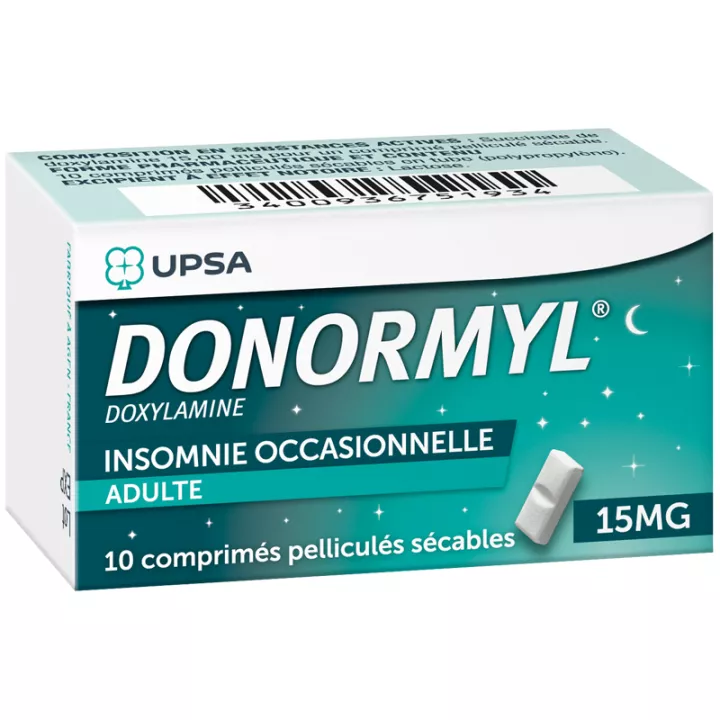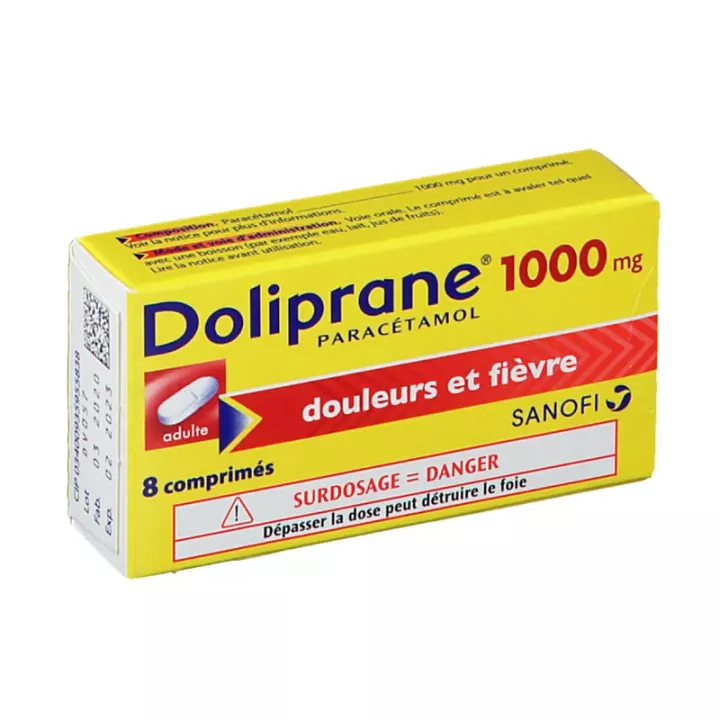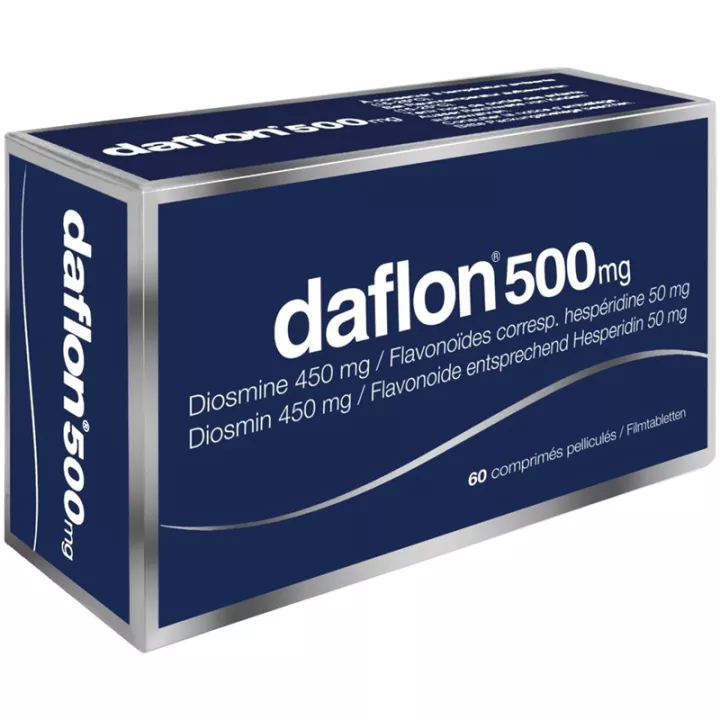NOTICE
ANSM - Updated: 05/10/2018
Name of the drug
IPRAFEIN 400 mg / 100 mg film-coated tablets
Ibuprofen, caffeine
framed
Read all of this leaflet carefully before you start taking this medicine because it contains important information for you.
You should always take this medicine exactly as described in this leaflet or by your doctor or pharmacist.
· Keep this leaflet. You might need to read it again.
· Talk to your pharmacist for any advice or information.
· If you get any side effects, talk to your doctor or pharmacist. This also applies to any undesirable effects that are not mentioned in this leaflet. See section 4.
· You should talk to your doctor if you do not feel better or if you feel worse after 3 days.
Do not let this medicine within the reach of children.
What does this booklet contain ?
1. What is IPRAFEINE 400 mg / 100 mg film-coated tablet and when is it used?
2. What you need to know before taking IPRAFEINE 400 mg / 100 mg film-coated tablets.
3. How to take IPRAFEINE 400 mg / 100 mg film-coated tablets
4. What are the possible side effects?
5. How to store IPRAFEINE 400 mg / 100 mg film-coated tablets
6. Contents of the package and other information.
1. WHAT IS IPRAFEIN 400 mg / 100 mg film-coated tablet AND WHAT IT IS USED FOR
IPRAFEIN contains two active substances: ibuprofen and caffeine. Ibuprofen belongs to a group of medications called nonsteroidal anti-inflammatory drugs (NSAIDs). NSAIDs provide relief by changing how the body responds to pain and fever.
Caffeine belongs to a group of medications called stimulants .
IPRAFEIN is used for the short-term treatment of acute pain of moderate intensity.
IPRAFEIN is indicated only in adults.
You should talk to your doctor if you do not feel any improvement or if your condition worsens after 3 days of treatment.
2. BEFORE YOU RECEIVE IPRAFEINE 400 mg / 100 mg film-coated tablets?
Do not take IPRAFEINE 400 mg / 100 mg film-coated tablets:
· if you are allergic to ibuprofen, caffeine or any of the other ingredients of this medicine (listed in section 6)
· if you have ever had difficulty breathing, asthma, runny nose, edema or hives after using acetylsalicylic acid or other similar painkillers (NSAIDs)
· if you have (or have had at least two episodes) a stomach ulcer or stomach bleeding;
· if you have a history of bleeding or gastrointestinal perforation related to previous treatment with NSAIDs;
· if you have severe liver, kidney or heart failure;
· if you have cerebral bleeding or other active bleeding lesions
· if you suffer from disorders of blood production;
· if you suffer from severe dehydration (caused by vomiting, diarrhea or insufficient fluid intake);
· if you are in the third trimester of pregnancy
Do not use IPRAFEINE in children and adolescents under 18 years of age.
Warnings and precautions
Discuss your treatment with your doctor or pharmacist before taking IPRAFEINE:
· if you have or have had asthma or allergic disease because difficulty breathing may occur
· if you suffer from hay fever, nasal polyps or obstructive chronic respiratory problems, as there is an increased risk of allergic reactions. Allergic reactions may include asthma attacks (so-called analgesic asthma), angioedema, or hives;
· if you have liver problems
· if you have impaired kidney function;
· if you are taking drugs that interact with IPRAFEINE, such as corticosteroids, blood thinners (such as warfarin), selective serotonin reuptake inhibitors (medicines used in case of depression) or antiplatelet agents (such as acetylsalicylic acid (see section "Other medicinal products and IPRAFEINE 400 mg / 100 mg film-coated tablets");
· if you have or have ever had bowel disease (ulcerative colitis or Crohn's disease)
· if you have heart problems, including heart failure, irregular heartbeat, angina (chest pain), or have had a heart attack, bypass, peripheral arterial disease (poor circulation of the legs or the feet due to narrowing or blockage of the arteries) or any type of stroke (including a "limited stroke" or transient ischemic attack "TIA");
· if you have high blood pressure, diabetes, high cholesterol, have a family history of heart disease or stroke, or smoke
· if you have ever had high blood pressure and / or heart failure;
· immediately after major surgery;
· if you have a bleeding disorder
· if you have an inherited blood disorder (acute intermittent porphyria);
· if you have certain skin diseases (systemic lupus erythematosus (SLE) or mixed connective tissue disease);
· if you have severe skin reactions such as exfoliative dermatitis, Stevens-Johnson syndrome, or toxic epidermal necrolysis. The use of IPRAFEINE should be stopped immediately at the first signs of rash, mucosal lesions or other signs of allergic reactions;
· if you have chicken pox. It is advisable to avoid the use of IPRAFEINE;
· if you have hyperthyroidism (the risk of side effects from caffeine may be increased);
· if you are taking ibuprofen-containing medicines over a long period of time (regular monitoring of your liver parameters, kidney function, and blood cell counts may be required).
Contact your doctor immediately if you present:
· stools bright red, tarry black stools, vomiting blood or a substance resembling coffee grounds;
· severe pain in the upper part of the stomach.
You should avoid consuming large amounts of caffeinated products (eg coffee, tea, food, other medicines and beverages) with IPRAFEINE.
The occurrence of adverse effects may be minimized by using the minimum effective dose for the shortest possible duration. Elderly patients have an increased risk of adverse effects.
Concomitant use of NSAIDs, including specific cyclooxygenase 2 inhibitors, increases the risk of adverse reactions (see section "Other medicinal products and IPRAFEINE 400 mg / 100 mg film-coated tablets") and should be avoided.
Anti-inflammatory / anti-pain medications such as ibuprofen may be associated with a slight increase in the risk of heart attack or stroke, especially when used at high doses. Do not exceed the recommended dose or duration of treatment (3 days).
Prolonged use of any type of analgesic for headaches can aggravate these. In case of emergence or suspicion of such a situation, it will be necessary to consult a doctor and to interrupt the treatment.
Other medicines and IPRAFEINE 400 mg / 100 mg, film-coated tablet
Tell your doctor or pharmacist if you are taking, have recently taken or might take any other medicines.
IPRAFEINE can modify or be modified by certain drugs. For example :
· anticoagulants (that is, which fluidify the blood / prevent the blood from clotting, for example, aspirin / acetylsalicylic acid, warfarin, ticlopidine);
· treatments for arterial hypertension (Conversion Enzyme Inhibitors such as captopril, beta-blockers such as atenolol, angiotensin II receptor antagonists such as losartan).
Other medicines may also change or be modified by IPRAFEINE. You should always consult your doctor or pharmacist before using IPRAFEINE and other medicines.
In particular, tell your doctor or pharmacist if you are taking:
acetylsalicylic acid or other NSAIDs (anti-inflammatory and painkillers) | as it may increase the risk of gastrointestinal ulcers or bleeding |
digoxin (for heart failure) | because it could increase the effect of digoxin |
glucocorticoids (drugs containing cortisone or cortisone-like substances) | as it may increase the risk of gastrointestinal ulcers or bleeding |
antiplatelet agents | because it may increase the risk of gastrointestinal bleeding |
acetylsalicylic acid (low dose) | because it could alter the thinning of the blood |
medicines to thin the blood (such as warfarin) | because ibuprofen may increase the effects of these drugs |
phenytoin (for epilepsy) | because it may increase the effect of phenytoin |
selective serotonin reuptake inhibitors (drugs used in the case of depression) | because they could increase the risk of gastrointestinal bleeding |
lithium (medicine used in cases of manic depression and depression) | because it could increase the effect of lithium |
probenecid and sulfinpyrazone (gout medication) | as this may delay the elimination of ibuprofen |
drugs for high blood pressure and diuretics | because ibuprofen may reduce the effects of these medications and there may be an increased risk for the kidneys |
potassium-sparing diuretics | because it could cause hyperkalemia (high levels of potassium in the blood) |
methotrexate (medicine against cancer or rheumatism) | as it may increase the effect of methotrexate |
tacrolimus and ciclosporin (immunosuppressive drugs) | because it could lead to kidney damage |
zidovudine (medicine to treat HIV / AIDS infection) | because the use of IPRAFEINE film-coated tablets may increase the risk of bleeding into a joint or cause bleeding in HIV-positive hemophiliacs |
hypoglycemic sulfonamides (antidiabetic drugs) | because abnormal blood glucose levels are possible |
quinolone antibiotics | as this could increase the risk of seizures this could also increase the effect of caffeine |
CYP2C9 inhibitors | Concomitant administration of ibuprofen with CYP2C9 inhibitors may increase plasma concentrations of ibuprofen (CYP2C9 substrate). A dose reduction of ibuprofen should be considered, especially if high doses of ibuprofen are administered concurrently with voriconazole or fluconazole. |
mifepristone | because NSAIDs (such as ibuprofen) may decrease the effect of mifepristone. |
barbiturates, antihistamines and other drugs with a sedative effect (to calm or reduce anxiety) | because caffeine could reduce the sedative effect |
barbiturates and tobacco | because they could lessen the effects of caffeine |
sympathomimetics, thyroxine, and other medications that can give you tachycardia (a medicine against, for example, hypotension and thyroid conditions) | because concomitant administration may increase the pulse-rate effect of these drugs |
oral contraceptives, cimetidine, fluvoxamine and disulfiram (medications taken for birth control, inhibition of acid production by the stomach, depression and for the treatment of chronic alcoholism) | because they could increase the effects of caffeine |
theophylline (a medicine used for the treatment of respiratory diseases) | because it could increase the effect of theophylline |
analgesics (pain medications) | there is no increase in the risk of dependence on concomitant analgesics |
An increased effect resulting from an interaction could result in adverse effects.
IPRAFEIN 400 mg / 100 mg film-coated tablets with food, drink and alcohol
Patients with sensitive stomachs should take IPRAFEINE during meals. If you take it shortly after eating, IPRAFEINE's onset of action may be delayed. In this case, do not take more IPRAFEIN than the dose recommended in the section "How to take IPRAFEINE 400 mg / 100 mg film-coated tablets below and observe the interval between doses.
Some side effects, such as those affecting the gastrointestinal tract and the central nervous system, are more likely to occur when alcohol is consumed concurrently with IPRAFEINE.
Pregnancy, lactation and fertility
If you are pregnant or breast-feeding, think you may be pregnant or are planning to have a baby, ask your doctor or pharmacist for advice before taking this medicine.
Inform your doctor if you become pregnant while taking IPRAFEINE . Do not take this medicine during the last 3 months of pregnancy. Avoid using this medicine for the first 6 months of pregnancy unless your doctor tells you otherwise.
The active substances, ibuprofen and caffeine, pass into breast milk. Irritability and sleep disturbances have been reported in breastfed children. IPRAFEINE should only be used by nursing mothers when absolutely necessary.
The product belongs to a group of drugs (NSAIDs) that can affect fertility in women. This effect is reversible when the drug is stopped.
Driving and using machines
In case of short-term use and at a usual dosage, this medicinal product has no effect or negligible effect on the ability to drive and use machines. People with side effects such as dizziness, fatigue or visual disturbances should not drive or use machines. This applies mainly in case of association with alcohol.
3. HOW TO TAKE IPRAFEINE 400 mg / 100 mg, film-coated tablet?
Always take this medicine exactly as described in this leaflet or by your doctor or pharmacist. If in doubt seek the advice of your doctor or pharmacist.
The recommended dose is:
Adults:
Initial dose: take 1 tablet (400 mg ibuprofen and 100 mg caffeine). If needed, take an extra dose (one tablet) but do not exceed a total dose of 1200 mg ibuprofen and 300 mg caffeine (3 tablets) over a 24-hour period. The interval between two shots must be at least 6 hours.
Consult your doctor or pharmacist if you feel that the effect of this medicine is too strong or too weak.
Oral way.
Swallow the tablets whole with a glass of water.
The duration of treatment should not exceed 3 days.
IPRAFEIN is not recommended for mild pain or when the duration of treatment exceeds 3 days. Consult your doctor or pharmacist if the pain persists.
If you take more IPRAFEINE 400 mg / 100 mg film-coated tablets than you should:
If you take more IPRAFEINE 400 mg / 100 mg film-coated tablets than you should, or if children have accidentally taken the medicine, always contact a doctor or the nearest hospital for a advice on risk and advice on what to do. The symptoms of overdose are: blue discoloration of the skin and mucous membranes (cyanosis), confusion, headache, liver and kidney disorders, increased heart beat, decreased blood pressure, nausea, agitation, buzzing in the ears, trembling, unsteady eye movements, upset stomach, bleeding from the stomach and intestines, and vomiting (which may contain traces of blood).
In high doses, the following symptoms have been reported: drowsiness, delirium, irregular heartbeat, chest pain, palpitations, unconsciousness, convulsions (mainly in children), weakness and dizziness, blood in the urine, cold sensation body and respiratory problems.
If you forget to take IPRAFEINE 400 mg / 100 mg, film-coated tablet:
Do not take a double dose to make up for the dose you forgot to take.
If you have any further questions about the use of this medicine, ask your doctor or pharmacist for more information.
4. WHAT ARE THE POSSIBLE SIDE EFFECTS?
Like all medicines, this medicine can cause side effects, although not everybody gets them.
You could develop one of the known side effects of NSAIDs (see below). If this happens or if you have any doubts, stop taking this medicine and consult your doctor as soon as possible. Elderly patients who use this medication have an increased risk of developing problems associated with side effects.
STOP taking IPRAFEINE immediately and consult a doctor if you experience any of the following, which may be possible signs of severe adverse events:
· stomach pain, epigastric burns or severe abdominal pain
· vomiting of blood or a substance resembling coffee grounds;
· tarry black stools or blood in the urine;
· skin reactions such as itchy rashes;
· difficulty breathing and / or swelling of the face or throat;
· fatigue associated with loss of appetite;
· sore throat associated with ulcers in the mouth, tiredness and fever;
· nosebleeds and cutaneous bleeding;
· abnormal fatigue associated with a reduction in the amount of urine;
· swelling of the face, feet or legs;
· chest pain.
Frequent (may affect up to 1 in 10 people)
· heartburn, abdominal pain, nausea and indigestion, vomiting, flatulence, diarrhea, constipation and slight blood loss in the stomach and / or intestine that may cause anemia in exceptional cases;
· dizziness, insomnia, headache.
Uncommon (may affect up to 1 in 100 people)
· ulcers of the stomach or intestine, sometimes accompanied by bleeding and perforation, inflammation of the mucous membrane of the mouth accompanied by ulceration (ulcerative stomatitis), inflammation of the stomach (gastritis), stool black tarry, vomiting of a substance resembling coffee grounds, worsening of colitis and Crohn's disease;
· agitation, palpitations, irritability or fatigue;
· visual disturbances, psychotic reactions;
· allergic reactions, such as rashes, itching and asthma attacks. You must stop taking IPRAFEINE and inform your doctor immediately.
Rare (may affect up to 1 in 1,000 people)
· tinnitus (ringing in the ears);
· renal impairment (papillary necrosis) and elevated uric acid levels in the blood.
Very rare (may affect up to 1 in 10,000 people)
· swelling (edema), high blood pressure (hypertension) and heart failure have been reported in association with NSAID therapy;
· inflammation of the esophagus or pancreas, narrowing of membrane formation in the small intestine and the large intestine (formation of "diaphragm-like" narrowing of the bowel);
· less frequent urination and swelling (especially in patients with high blood pressure or reduced renal function); swelling (edema) and cloudy urine (nephrotic syndrome); Inflammatory kidney disease (interstitial nephritis) that may lead to acute renal failure. If you develop any of the above symptoms or if you have a general feeling of being sick, stop taking IPRAFEINE and see your doctor immediately as this may be the first sign of kidney damage or kidney failure;
· problems in the production of blood cells, the first signs of which are: fever, sore throat, superficial ulcers in the mouth, flu-like symptoms, severe exhaustion, nosebleeds and cutaneous bleeding. If this happens, you should stop treatment immediately and consult a doctor. Under no circumstances should self-medication with painkillers or medications be used to reduce fever (antipyretic drugs);
· depression;
· an exacerbation of inflammations accompanied by an infection (for example, necrotizing fasciitis: necrosis of the tissue that surrounds the muscles), associated with the use of certain painkillers (NSAIDs), has been described. In the event of the appearance or aggravation of signs of an infection during the use of IPRAFEINE, you should consult a doctor without delay. The question is whether anti-infective / antibiotic treatment is necessary;
· high blood pressure, heart failure, heart attack, vasculitis;
· hepatic dysfunction (early signs may be a change in skin discolouration), liver injury, especially in case of long-term treatment, liver failure, acute inflammation of the liver (acute hepatitis);
· symptoms of aseptic meningitis such as stiffness in the neck, headache, nausea, vomiting, fever or unconsciousness were observed when ibuprofen was used. The risk may be increased in patients with autoimmune diseases (Lupus Erythematosus Disseminated, mixed connective tissue disease). If you develop these symptoms, contact a doctor immediately;
· severe forms of skin reactions such as rash associated with redness and blistering (eg, Stevens-Johnson syndrome, toxic epidermal necrolysis / Lyell syndrome), hair loss (alopecia), infections severe skin and soft tissue complications occurred in case of chicken pox;
· severe generalized hypersensitivity reactions (the signs of which may be a severe allergic reaction that causes swelling of the face or throat, difficulty breathing, accelerated heartbeat, decreased blood pressure, anaphylactic shock ( severe allergic reaction that causes difficulty breathing or dizziness).
Not known (can not be estimated from the available data)
· trembling;
· accelerated heartbeat;
· a severe skin reaction called hypersensitivity syndrome (DRESS syndrome) can occur. Symptoms of hypersensitivity are: rash, fever, swollen lymph nodes, and increased eosinophils (a type of white blood cell).
Drugs such as IPRAFEINE may be associated with a slight increase in the risk of heart attack ("myocardial infarction") or stroke.
In a dental extraction study, some patients (2.8%) developed inflammation of the dental extraction cavities and some patients (1.4%) developed gingival inflammation after surgery.
Declaration of side effects
If you get any side effects, talk to your doctor or pharmacist. This also applies to any undesirable effects that are not mentioned in this leaflet. You can also report side effects directly via the national reporting system: National Agency for the Safety of Medicines and Health Products (ANSM) and the network of Regional Pharmacovigilance Centers - Website: www.ansm.sante.fr
By reporting side effects, you can help provide more information on the safety of the medicine.
5. HOW TO STORE IPRAFEINE 400 mg / 100 mg film-coated tablet?
Keep this medicine out of the sight and reach of children.
Do not use this medicine after the expiry date which is stated on the carton after EXP. The expiry date refers to the last day of this month.
This medicine does not require any special conditions of storage.
Do not dispose of any medication in the sewage system or garbage. Ask your pharmacist to eliminate medications you no longer use. These measures will help protect the environment.
6. CONTENTS OF PACKAGING AND OTHER INFORMATION
What IPRAFEINE 400 mg / 100 mg film-coated tablet contains
· The active substances are ibuprofen and caffeine:
Each film-coated tablet contains 400 mg ibuprofen and 100 mg caffeine.
· The other components are:
Core of the tablet:
Microcrystalline Cellulose, Croscarmellose Sodium, Colloidal Silica Anhydrous Magnesium Stearate.
Laminating:
Hypromellose, hyprolose, macrogol 6000, talc, titanium dioxide (E171).
What IPRAFEINE 400 mg / 100 mg film-coated tablet looks like and contents of the pack
IPRAFEIN is a white, oval-shaped, film-coated tablet measuring 17.8 mm x 8.6 mm.
IPRAFEINE comes in blister packs.
Boxes of 6, 10, 12, and 15 film-coated tablets.
Not all presentations may be marketed.
Marketing Authorization Holder
SANOFI AVENTIS FRANCE
82 AVENUE RASPAIL
94250 GENTILLY
Operator of the marketing authorization
SANOFI AVENTIS FRANCE
82 AVENUE RASPAIL
94250 GENTILLY
Maker
DELPHARM REIMS
10 COLONEL CHARBONNEAUX STREET
51100 REIMS
Names of the medicine in the member states of the European Economic Area
This medicine is authorized in the member states of the European Economic Area under the following names: In accordance with the regulations in force.
[To be completed later by the holder]
The last date this leaflet was revised is:
[to be completed later by the holder]
Other
Detailed information on this medicine is available on the ANSM website (France).




